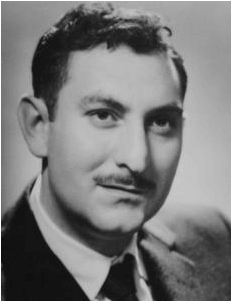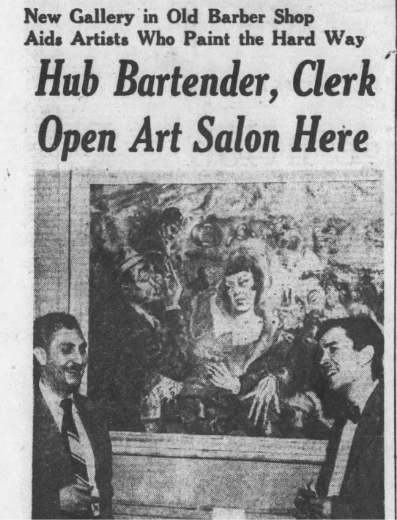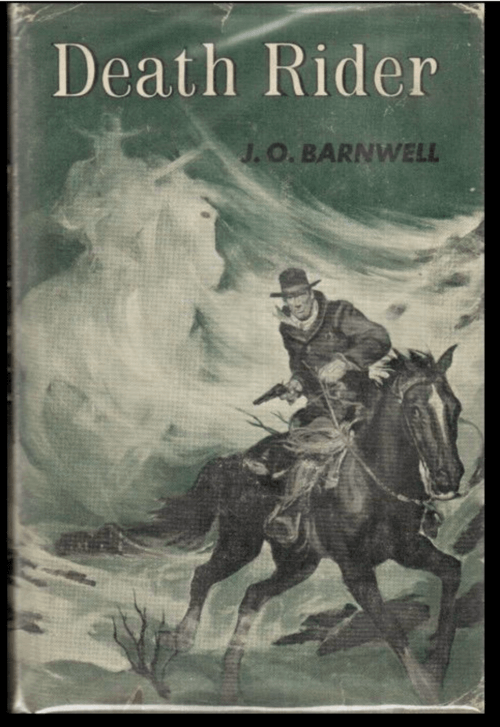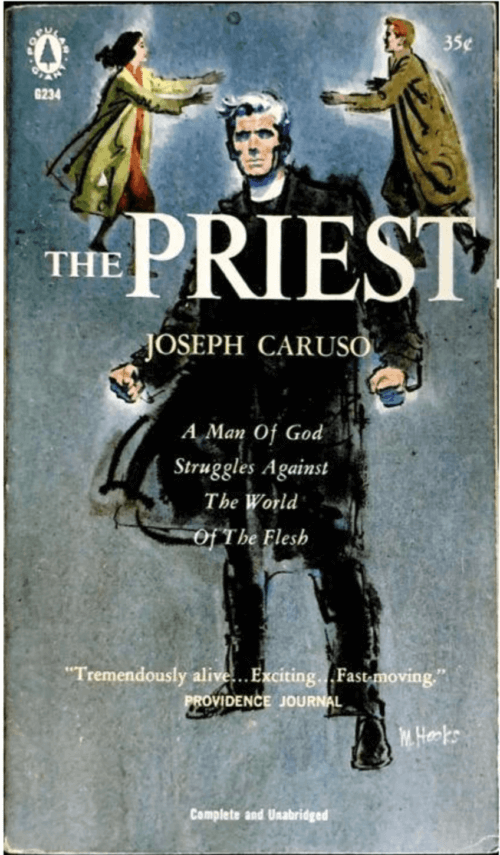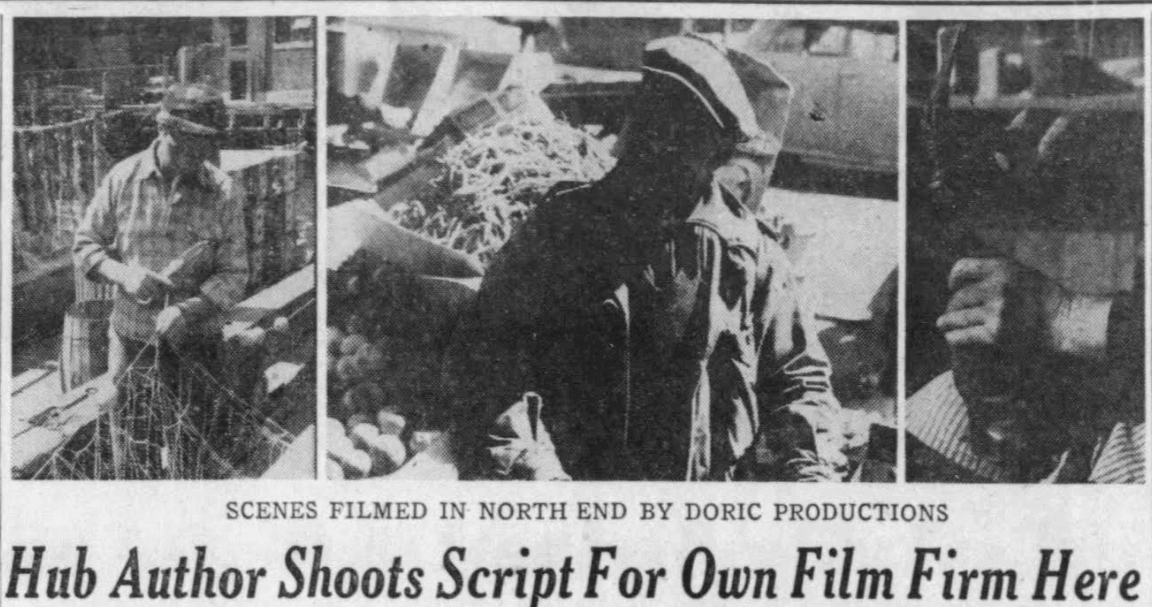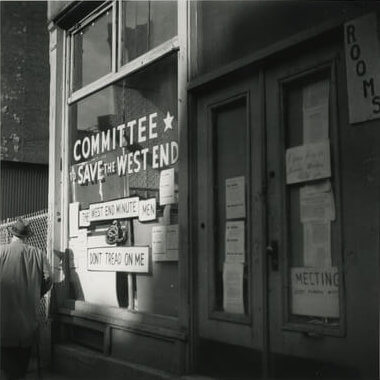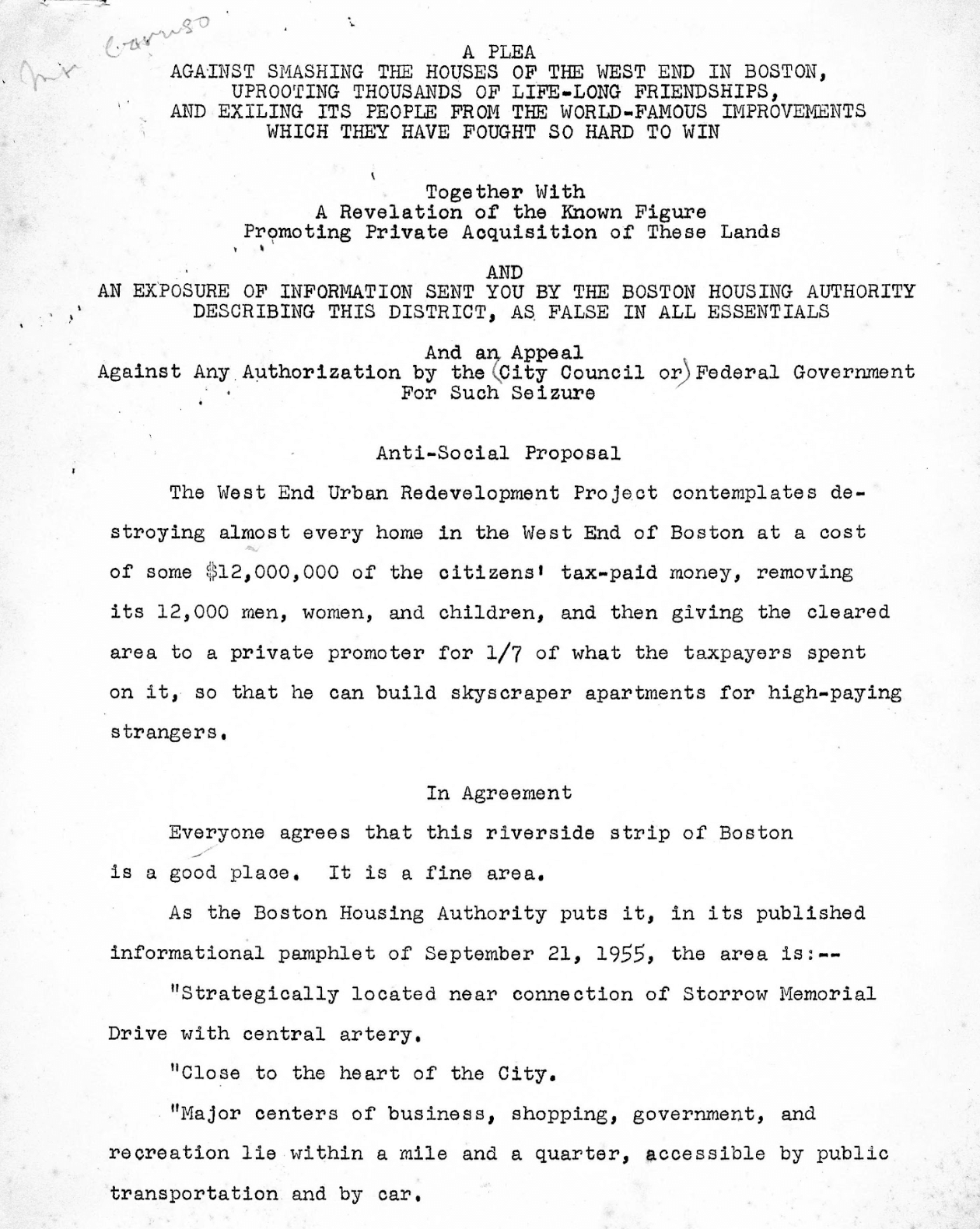Joseph Caruso: Artist, Author, and Activist
Joseph “Bepo” Caruso came to the West End from Sicily when he was seven years old. During his rich life he served in World War II, opened an art gallery, published novels, started a film production company, and was a founder of the Committee to Save the West End.
Born near Catania, Sicily in 1924, Joseph “Bepo” Caruso left for the United States at the age of seven with his mother and sister. Unfortunately, his father, who planned to follow his family, passed away while the three were still traveling. The Caruso’s settled in the West End among family, where Joseph attended the Blackstone School. While in ninth grade at the High School of Commerce (later named English High School), he earned a scholarship to study at the Museum of Fine Arts.
Caruso attended art school for a short time before spending two years traveling through the American West, Southwest and the South. During these years he held various jobs including truck driver, construction laborer, sign painter and muralist. He served with the Army in Europe as a communication specialist during WWII and received the Bronze Star. After the war, Caruso met and married his wife Constance and re-enrolled in art school. They lived at 68 Green Street above a fish market and had four children. In 1952 Joseph and an art school friend opened the Hollis Street Art Guild for local artists in the South End, which they called the “Poor Man’s Gallery.”
When the building that housed his gallery was eventually torn down, Caruso turned to writing. When not working as a clerk at the Mattapan Sanitorium or delivering mail for U.S. Post Office, Caruso wrote at his kitchen table. Some of his writing drew on his experiences traveling through Missouri, Wyoming and the Mojave Desert. He wrote Westerns such as Death Rider and Trail of A Gunfighter under the pen name J.O. Barnwell. After his wife urged him to write about life in the West End, he wrote The Priest, which was published in 1956 and was widely sold.
The Priest tells the story of a crime and a priest in crisis, interspersed with depictions of life in a Sicilian enclave of the West End. There, members of a Catholic parish (based on St. Joseph’s Church) navigate the changes associated with the Americanization of their families. The Priest is informative not only for its descriptions of the West End and Boston in the 1950’s, but also for its insight into a range of topics. It covers the feudal system in Sicily, relationships between Sicilians and Italians in the U.S., power struggles in the community, and the harrowing work of deep sea fishermen. Humorous dialogue among neighbors is also woven into the drama.
Hollywood showed interest in creating a film based on The Priest, but Caruso was unhappy with suggested revisions. In response, he and a group of friends formed their own company, Doric Productions. With independence from Hollywood, Caruso could produce his own local films, including documentaries such as The Flounderman (renamed The Fisherman). The film recounted the lives of the last Italian flounder fisherman working out of Boston’s former T Wharf. In an unusual step, Caruso recruited 78 year-old Joseph Catanzaro, an actual fisherman, to play the lead role.
While the Caruso children were still attending St. Joseph’s School and English High School, the City of Boston announced redevelopment plans for the West End. To save his neighborhood, Caruso founded The Committee to Save the West End with five others. Based in an office on Staniford Street, the Committee worked to bring a lawsuit against the city that went to the Supreme Judicial Court. Caruso also served as a member of the citizens’ advisory committee for Dr. Erich Lindemann’s study on the effects of forced relocation.
After losing the lawsuit and seeing his beloved West End razed, Caruso moved his family to Somerville. He continued to work for the U.S. Postal Service, wrote book reviews for the Boston Globe, and pursued his artistic interests. He also maintained his ties to the old neighborhood by helping Jim Campano establish The West End Newsletter in the 1980’s. During his life Mayor Kevin White honored him by declaring August 1, 1973 “Joseph Caruso Day.” After his death in 2008, The West End Museum named Joseph Caruso a West End Heritage Honoree in 2014.
Article by Janelle Smart Fisher, edited by Bob Potenza
Sources:The Boston Globe, The West End Museum; Caruso Joseph. 1956. The Priest; [Fiction]. New York: Macmillan.


